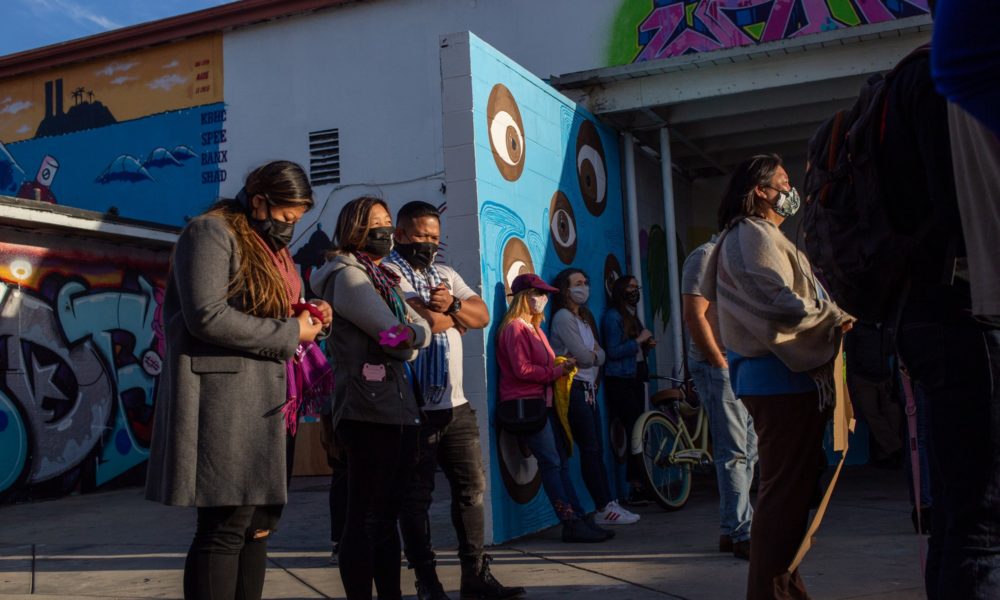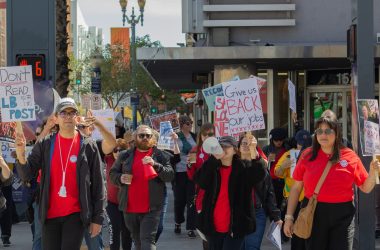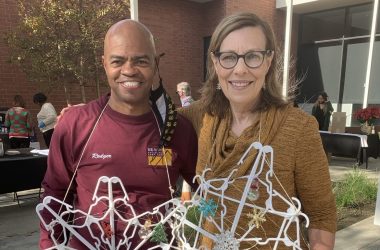Around 200 people gathered to “mourn victims of senseless violence and brutality” at MacArthur Park Friday afternoon as part of an anti-hate rally and vigil organized by community leaders and Councilwoman Suely Saro.
“I really felt like people needed a space to come together and to just connect given how heavy everybody’s been feeling,” Saro said. “I feel like [this is what] the community asked for, which is a space to acknowledge those who’ve passed recently and a space to connect and breathe and check in with each other.”
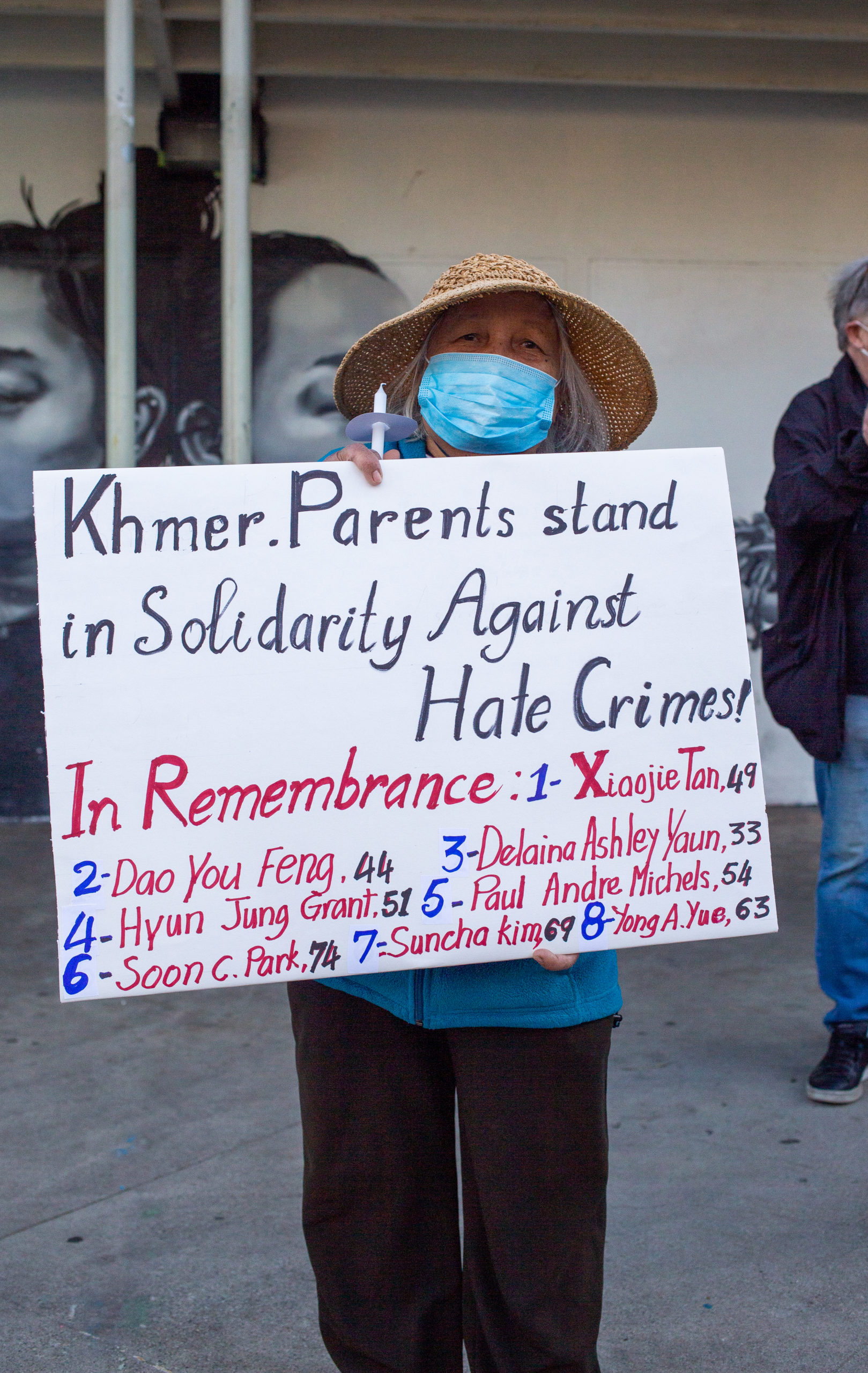
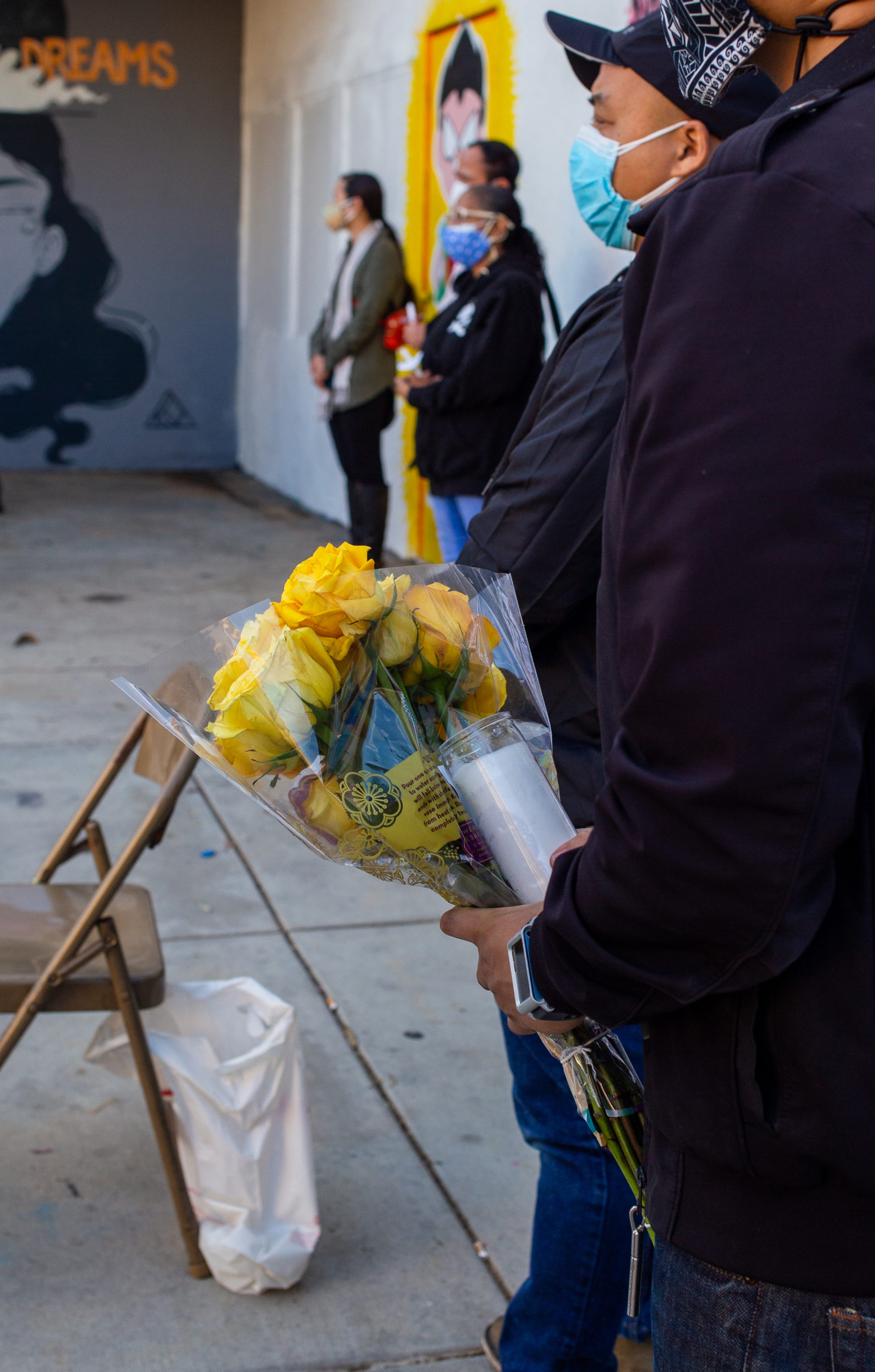
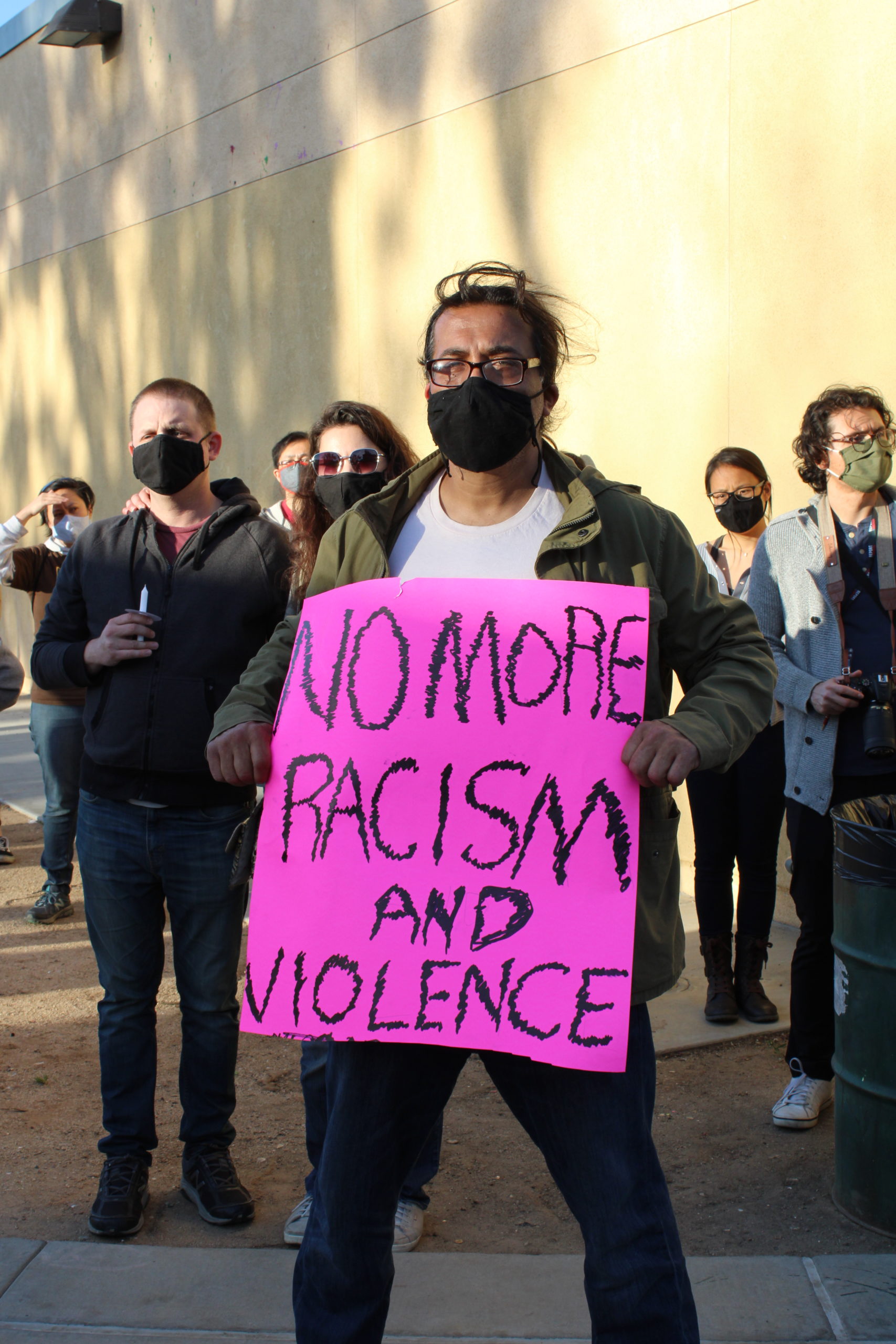
Leaders from local organizations had the opportunity to speak throughout the event, many echoing sentiments of unity and building community.
Romeo Hebron, executive director of the Filipino Migrant Center, said the recent attacks against Asian American Pacific Islander communities are “nothing new” as they are a result of “institutional and systemic issues” in America. He maintained that now is the time for communities to work together to fight the systems that are in place.
“How are we going to turn these into something positive for our communities, for our people, for all people who are facing oppression and exploitation? How are we going to channel these and not just for the Asian community, but for all people?” Hebron said. “And so, even though we’re gathered here today for a very somber occasion and we want to honor the lives of those who are lost, I want everyone to, if you can, just take a look around, just take a few seconds to scan right now and just look around at all the people who are out here. And just, just, we should remind ourselves that we’re not alone.”
Data collected by the Center for the Study of Hate and Extremism showed that in 16 of the largest cities in the U.S., anti-Asian hate crimes increased by 149% in 2020. Anti-Asian rhetoric and attacks against the AAPI community as coronavirus cases began to rise are considered to be the root cause of the increase, according to CSHE.
Charles Song, president of Equity for Cambodians, addressed the root causes of the increase in violence.
“We have different colors tonight here standing strong against the hate, and this is the symbol of hate that we all been suffering from for the last four or five years,” Song said. “As an Asian American, although it has not been happening in our city, I want to take an opportunity to thank the councilwoman for bringing this resolution to the floor for the simple fact that the next city might be Long Beach, the next time it’s gonna happen, [it] might be one of your mothers or my kids.”
The resolution, introduced by Saro Tuesday to the Long Beach City Council, called on the body to “condemn xenophobic hate and harassment toward the Asian American and Pacific Islander communities, especially during the COVID-19 pandemic.” It was adopted unanimously.
Long Beach is home to the largest population of Cambodian individuals outside their home country in all of the U.S. Of the 400,000 residents in the city, over 65,000 identify as AAPI.
Many speakers emphasized the need to acknowledge the violence against AAPI women, in particular, in the wake of Tuesday’s killings.
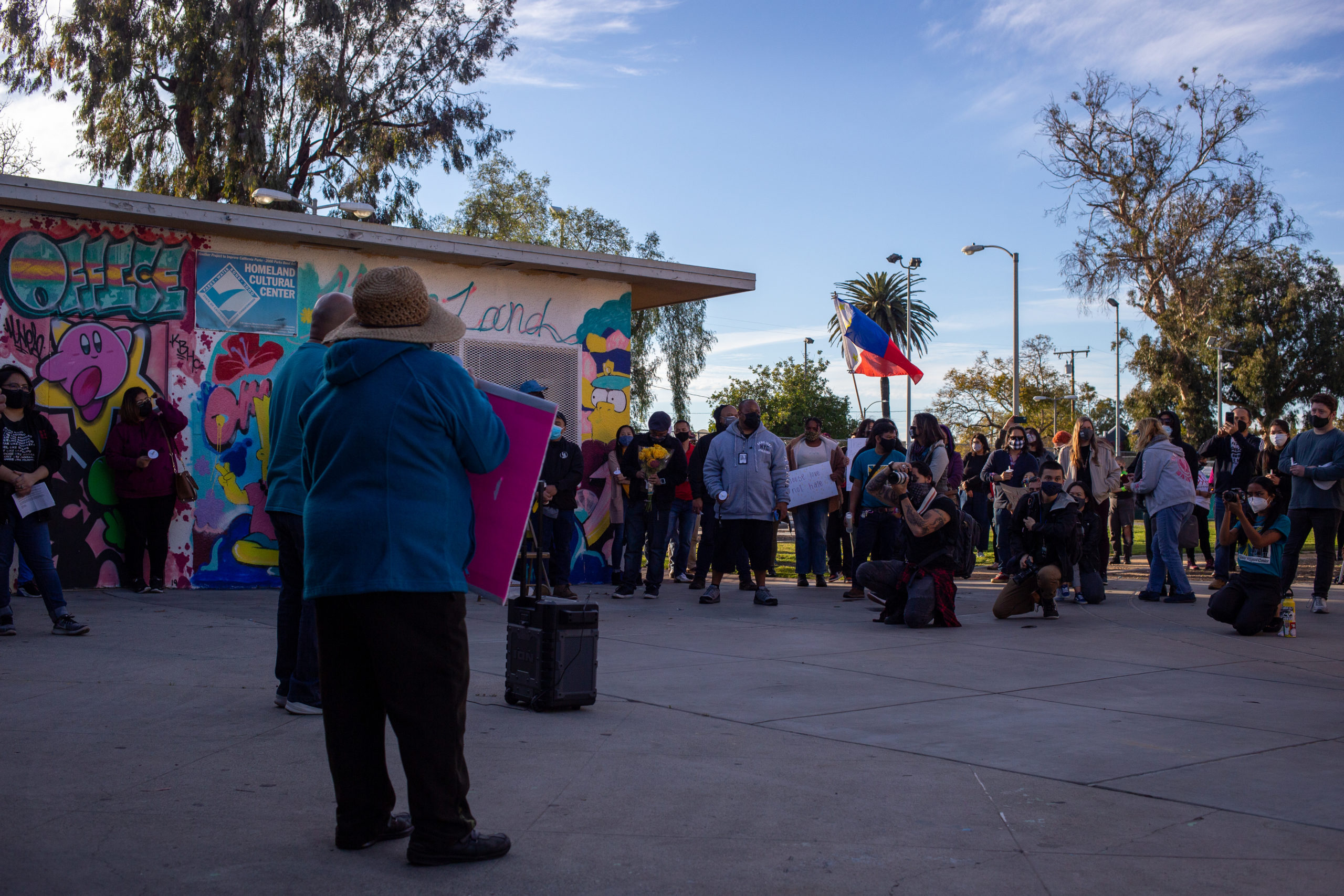
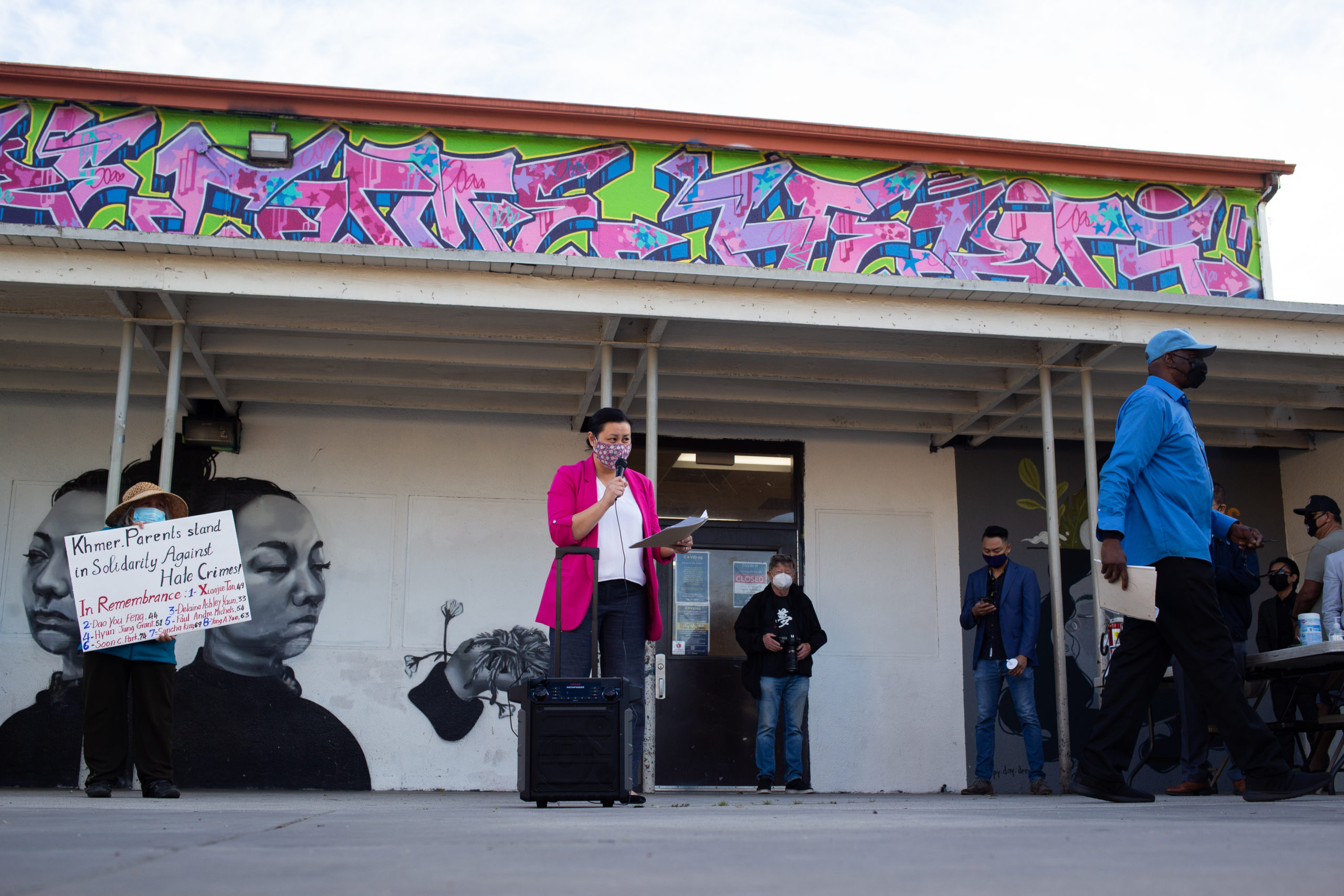
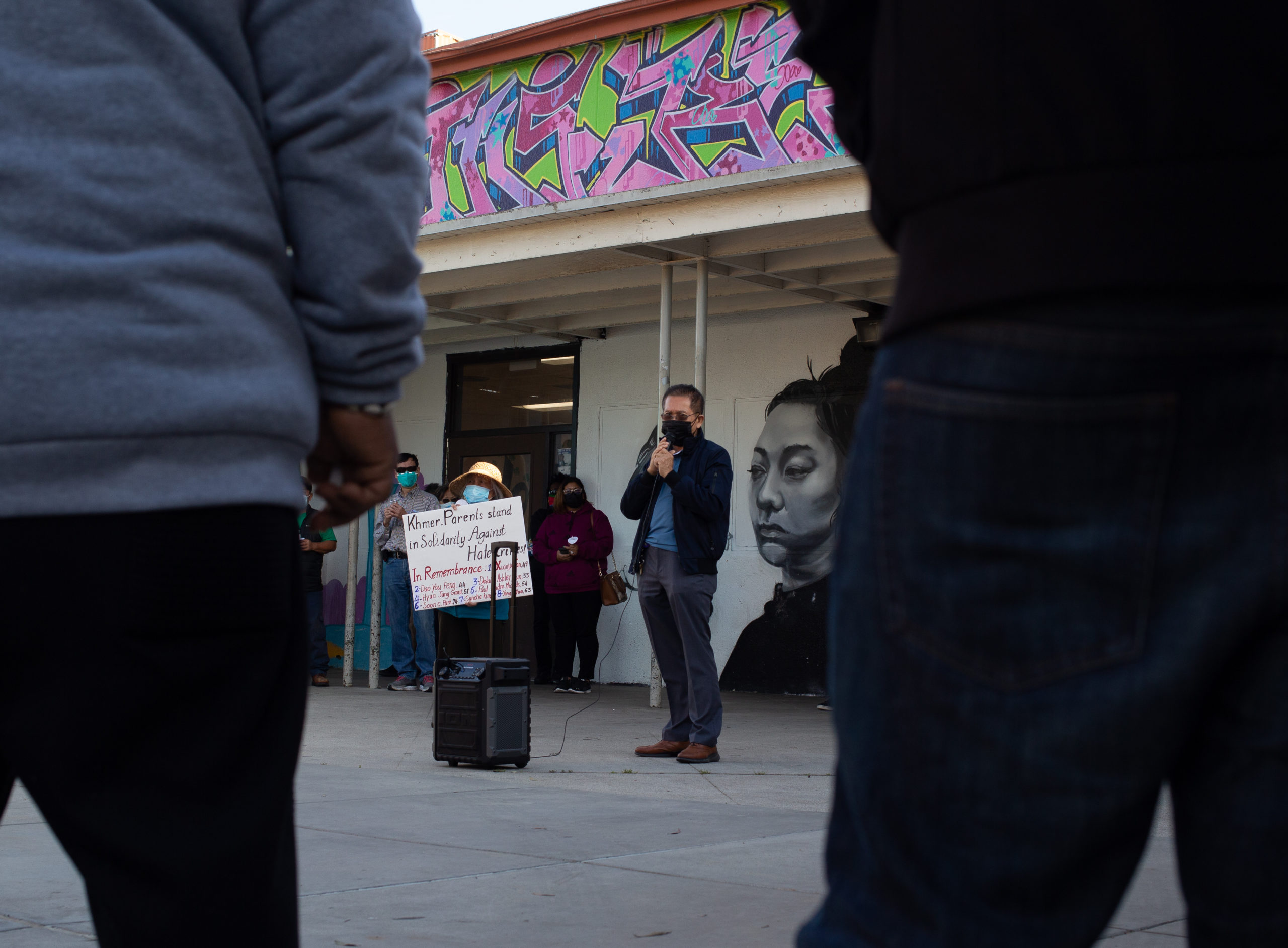
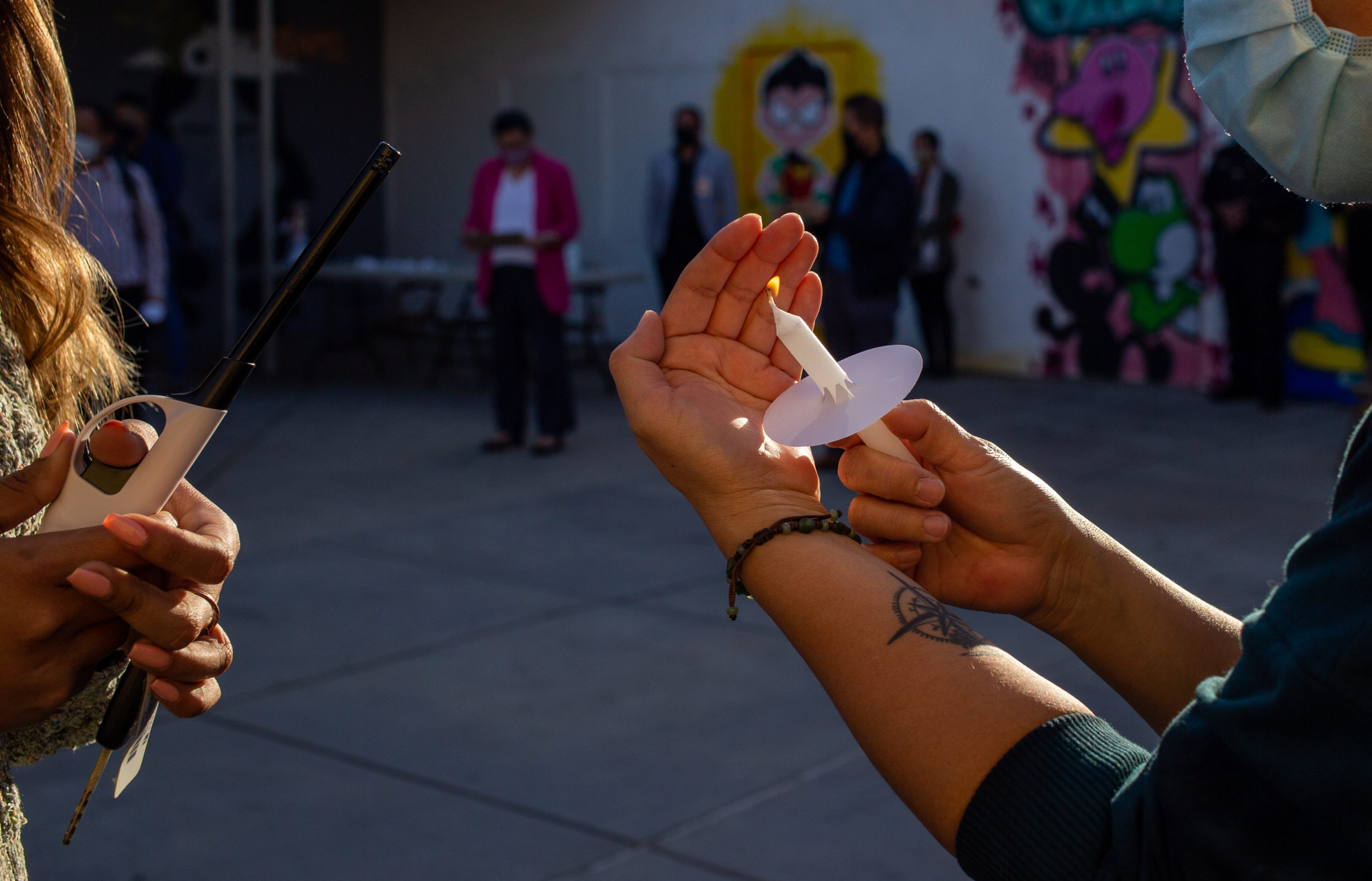
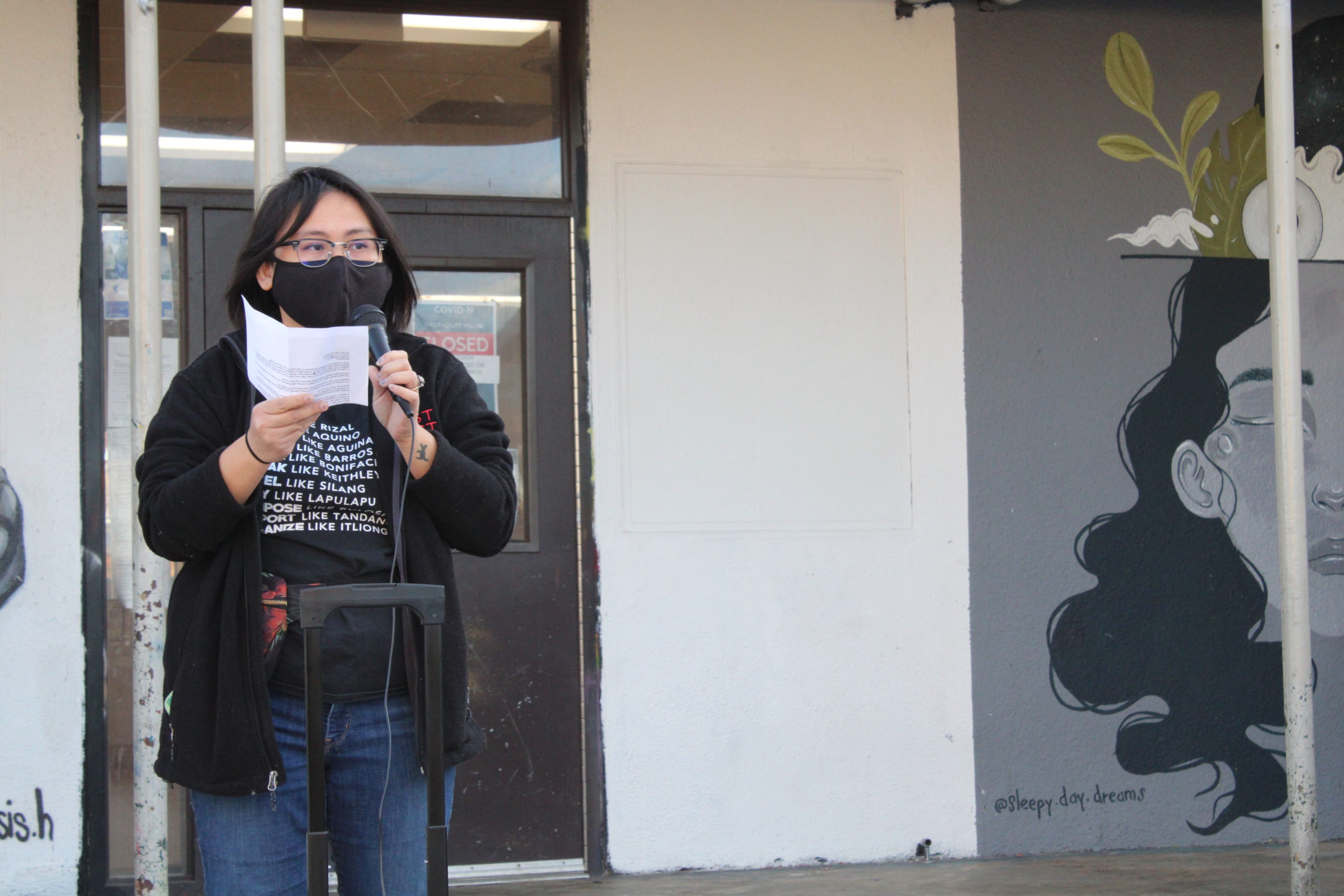
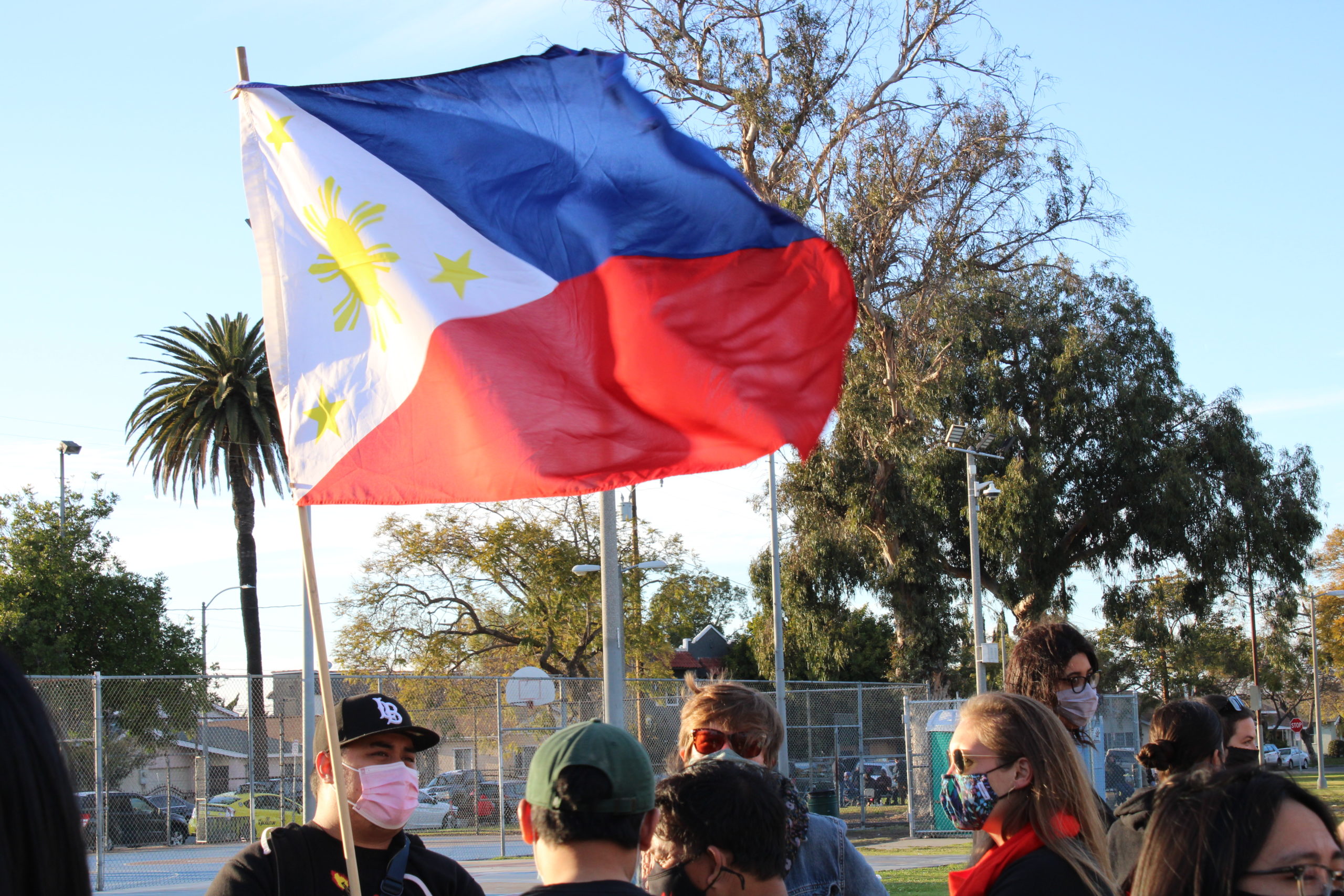
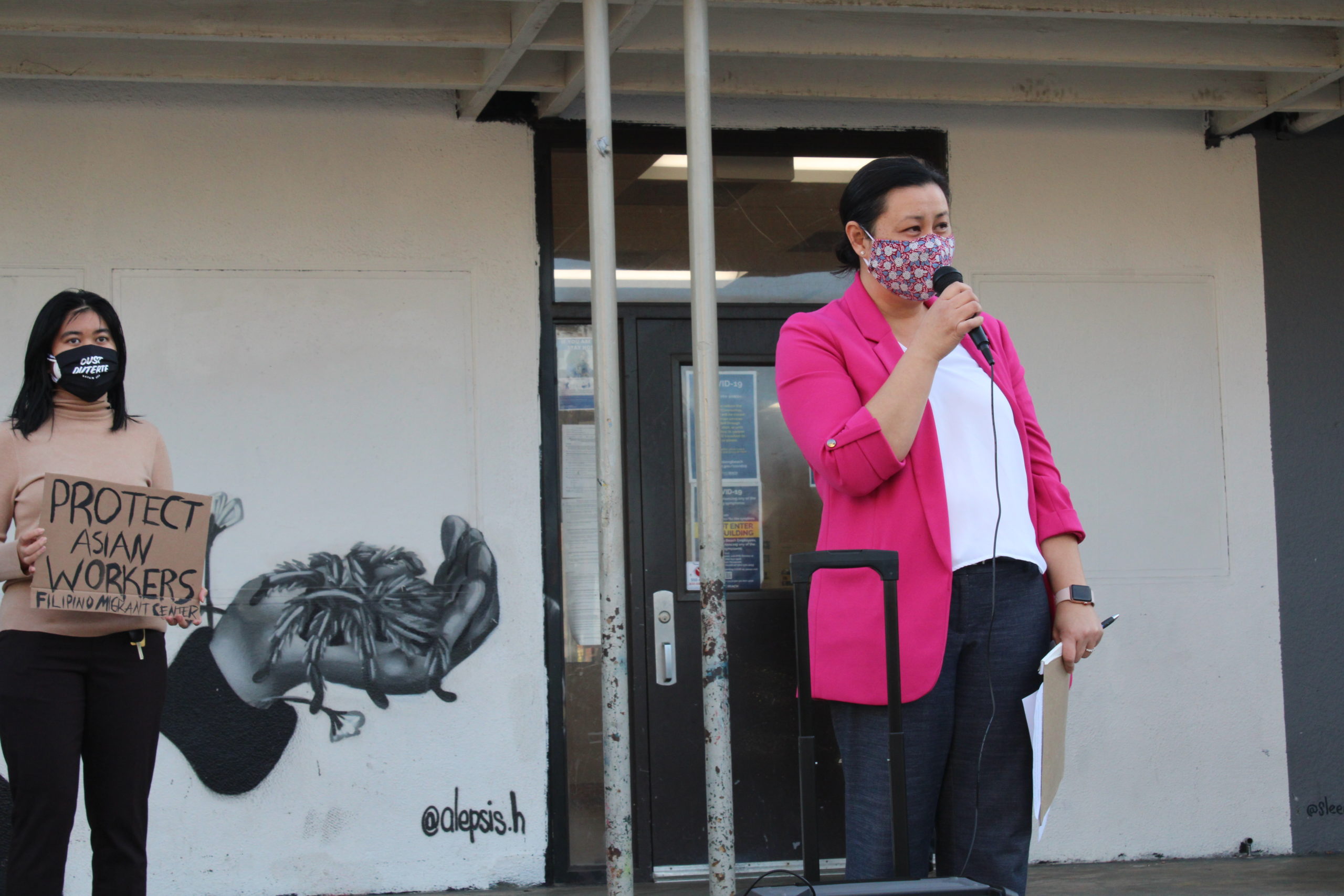

Jade Cagalawan, an organizer with Gabriela South Bay, condemned the violence that took place Tuesday and “the recent hate crimes that have escalated across the United States.”
“Asian women are often commodified and stereotyped as subservient sexual objects for men,” Cagalawan said.
Calling for justice for the victims, Cagalawan demanded that government officials to be held accountable for “upholding white supremacy,” which she said is “rooted in American imperialism.”
Another participant in the event, Tiffany Davy, said she attended the event “in honor of my great grandfather, who was born in Hong Kong.” Davy stood in solidarity with others affected by “this pain that we’re experiencing.”
“That connection to our communities, the Black and Asian communities, has existed for centuries,” Davy said.
Although anti-Asian hate crimes have not been documented in Long Beach within the last year, according to reporting by the Long Beach Post, Saro wanted to ensure that those in the AAPI community not only felt heard, but also felt safe to come forward in the case of an attack occurring.
Saro maintained that there are mental health care services, support and counsel offered in the community.
“We need to ensure that people’s experience are important and validated. Verbal harassment leads to physical assault that leads to higher level of assaults or crime, and I feel that if we can just get people to start sharing and reporting, early on, then we can make sure we’re catching it before it actually happens,” Saro said. “So by doing this, I’m hoping that it inspires people and encourages people that Asian Pacific Islanders’ experience are real, and that we should take everything seriously.”
Julia Terbeche, news editor, contributed to the reporting of this article.

